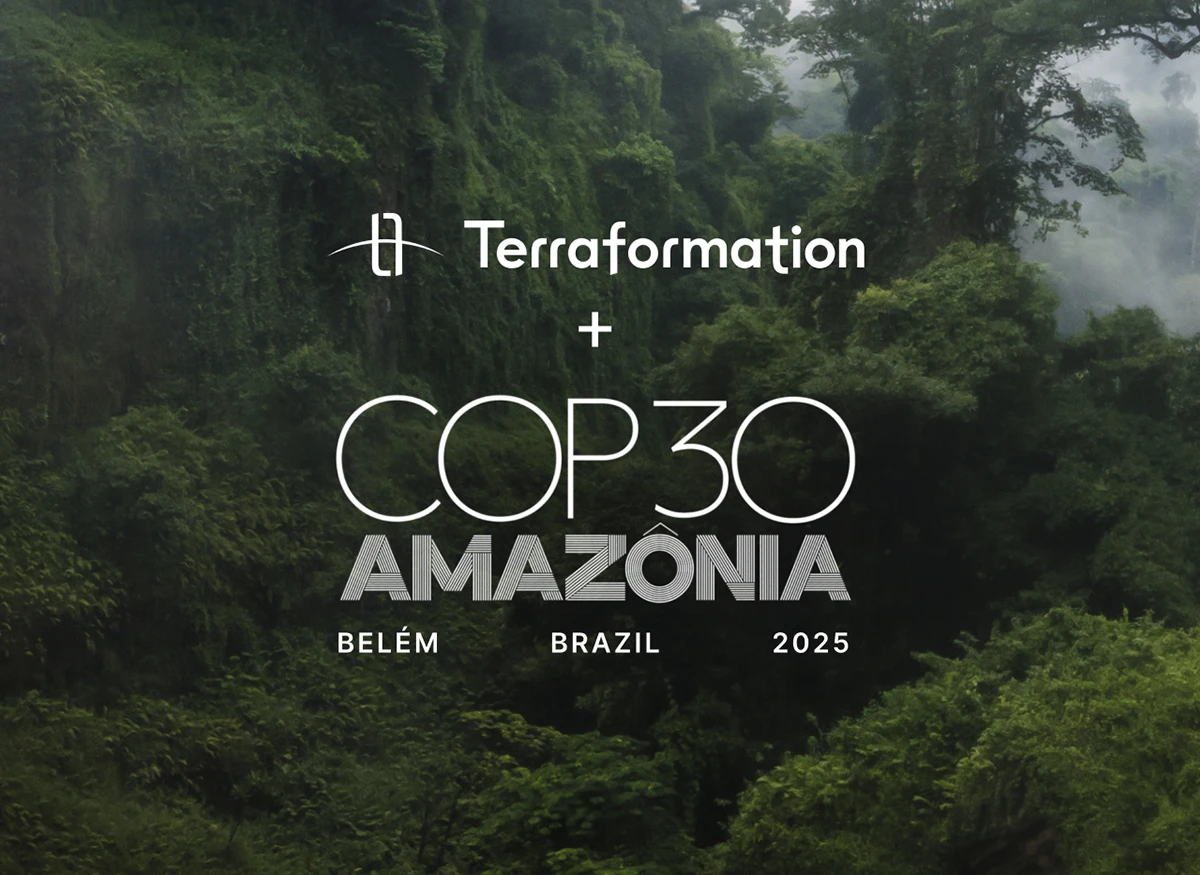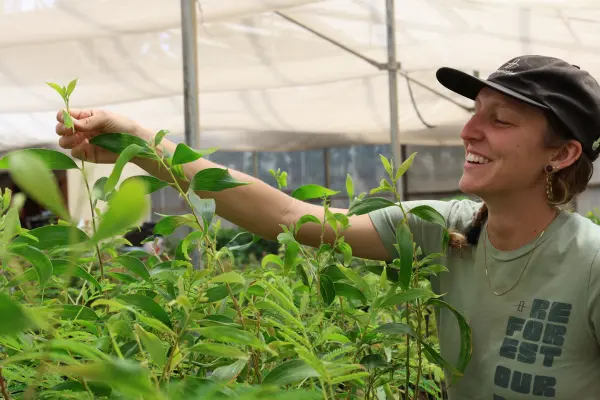Investing for Nature on International Day of Forests

In 2019, reforestation suddenly gained a higher profile than ever before. Popular YouTuber MrBeast launched a campaign to raise $20 million to plant 20 million trees. Elon Musk donated $1 million and temporarily changed his Twitter handle to “Treelon.” And Ethiopia broke a world record for the most trees planted in a day, when, according to officials, 23 million people planted 350 million trees.
The momentum continued, and at the World Economic Forum in January 2020, Marc Benioff announced 1T.org — an initiative to unite the world to save forests. These efforts underscored a growing awareness of the critical role forests play in our planet’s health.
The common trigger across these commitments was the publication of new research showing the potential of 1 trillion trees to draw down up to a third of anthropogenic carbon from the atmosphere. A co-author of the study, Tom Crowther, delivered a TED talk about the experience.
As Managing Director of Crowther Lab during this period, I watched as the same group of scientists behind the groundbreaking study published a stream of other high-impact ecological findings about the importance of forest fungi, global soils, and nematodes.
Yet it was the revelation about forests’ immense carbon sequestration potential that thrust nature into the spotlight. The conversation went very quickly from “wow” to “how?”
A new paradigm in forest restoration
Prompted by this awareness, investments in nature grew. Venture capital attention began to shift to nature-centric technologies, more than doubling from $1 billion in 2018 to $2.39 billion in 2021. Funga, an innovative venture rooted in Crowther Lab's fungal research, exemplifies this trend. By enhancing tree growth through symbiotic fungal microbiomes, Funga is revolutionizing forest management.
However, conserving, protecting, and restoring forests demands more than technological innovation. True forest health necessitates economic viability for the local communities supporting the ecosystems that underpin them. To achieve our restoration goals, we must pivot from mere investment in nature to investment for nature and people, empowering a portfolio of diverse economic and socio-cultural solutions that embed biodiversity at their core.
“Ecopreneurship” for global biodiversity goals
This ethos underpins Restor, a global network of environmental entrepreneurs (or “ecopreneurs”) seeking to find the virtuous cycles that regenerate nature while improving socioeconomic prosperity, leading to greater protection of nature and more positive social outcomes.
The solutions do exist. It is now simply a matter of our collective willingness to accelerate vast portfolios of these solutions at the speed and scale required.
In December 2022, more than 195 countries adopted the historic Kunming-Montreal Global Biodiversity Framework (GBF). The GBF’s most prominent targets include the restoration of 30% of degraded ecosystems globally (Target 2) and the conservation and management of 30% of land, inland water, and marine and coastal areas (Target 3) by 2030.
We need renewed political will, technologies, and other resources to deliver these targets on time.
Envisioning a forested future
Through an exciting collaborative partnership with the Food and Agriculture Organization of the United Nations (FAO), Restor is poised to spotlight solutions that contribute to Target 2 at COP16 in Colombia this year.
We will be launching country-level dashboards to support the FAO’s Framework for Ecosystem Restoration Monitoring (FERM) in transparently tracking how projects, through these ecopreneurs and local communities, are contributing toward the delivery of our global goals. This will build greater trust in the movement and a better allocation of GBF’s $200 billion per year commitment across broad portfolios of nature-based solutions.
As we mark International Day of Forests, let us recognize the strides made in forest conservation and restoration. Yet let us also be aware of the imperative to invest not just in nature, but for people and nature. By fostering socioeconomic models that harmonize with ecological integrity, we can build a regenerative future where forests flourish and communities thrive.
About Restor:
Creating a world where every action positively impacts nature. Restor is an open-data, geospatial platform that offers nature stewards access to the latest ecological science for impact storytelling. With over 200,000 sites, Restor is the largest network of community-led nature sites across the globe. Restor enables communities doing restoration work to connect to data, knowledge, and markets in order to grow, while governments, companies, impact funders and financial institutions can build diverse portfolios of projects to be funded and monitor their impact.
About the
Series:
Who Will Speak For The Trees?
At a time when human economic development is prioritized over the needs of nature, the Who Will Speak for the Trees? series features top reforestation leaders with a broad range of restoration expertise, including climate tech, monitoring, science, finance, media, and more. These diverse voices offer expert viewpoints to instill confidence in how humanity can support nature to deliver a forested future for all living things on Earth. Join us for this ongoing series to learn more about the science of reforestation and how restoring ecosystems is part of a comprehensive climate solution.
















